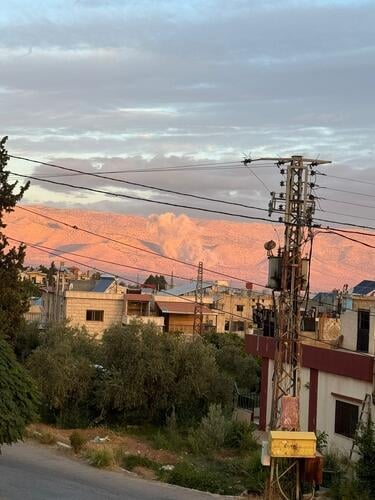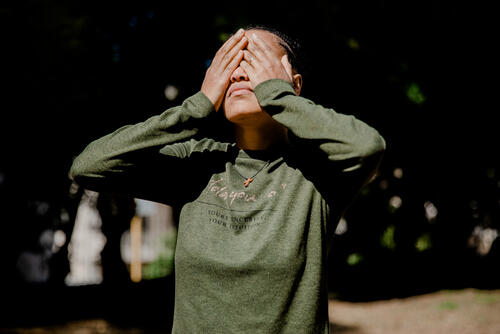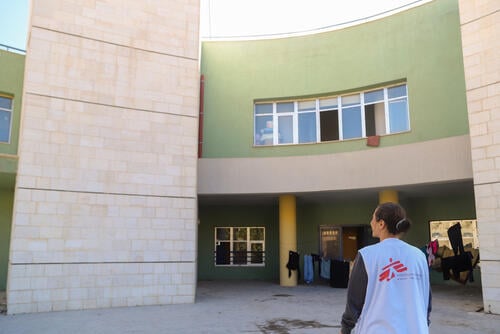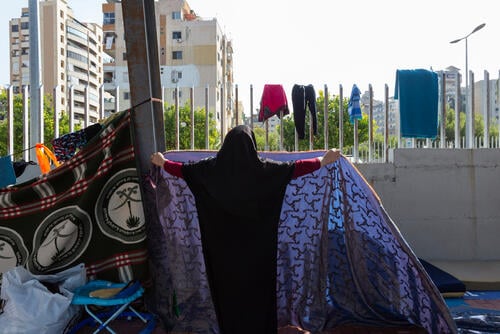On 23 September, after nearly one year of cross-border attacks along Lebanon's southern border, Israel escalated its bombardment of Lebanon, causing waves of mass displacement that have surpassed the country's ability to provide adequate shelter.
On 1 November, our team met women sheltering at a school with their families in Bichwet, Baalbek-Hermel governorate.
Fatima's vibrant smile slowly fades away after entering the classroom. Desks and chairs are stacked on one side of the room, making room for the mattresses laid out on the floor. She'd rather be at a school to seek education for her three children, not to seek refuge.
“I didn't want to leave our home, I really didn't,” says Fatima, who is 43 years old. “The day we were forced to leave was the toughest day.”
On 29 September, Fatima quickly collected a couple of mattresses and blankets and headed out of the house under the bombing. Some five minutes later, her neighbour's house in Kfarden was bombed.
“I am grateful I saved my children,” she says. “My husband and I live for them. We're well physically, but not at all mentally. We muster patience and wait for the war to end.”
We're well physically, but not at all mentally. We muster patience and wait for the war to end.Fatima, from Kfarden
Fatima wipes her tears and puts a coffee pot on a portable stove. Her vibrant smile returns as she says, “We are the people of Baalbek, we honour our guests, with whatever means available.”
Iqbal knocks on the door and enters. The 60-year-old woman was forced to leave her town, Boudai, and arrived at the school on the same day as Fatima.
“We couldn't sleep all night because of the constant bombing all around us,” says Iqbal. “When the sun came up, we fled with nothing. We didn't even know where we're going, we just ran for our lives.”
Iqbal managed to get a few mattresses and blankets for herself, her father, and her three siblings.
“We know nothing about our house,” she says. “I miss home so much, and the things I took for granted before. It's dangerous to go back home; it's undignified to stay here.”
As they're sipping coffee, their chats are filled with a shared sense of nostalgia for the recent past. Fatima does something that Iqbal hasn’t dared though; she risks her life every few days to go back home.
“There are no showers in this school and the weather is freezing here in the mountains,” says Fatima. “We can't afford to heat up water on the stove. We also can't afford to have our children get sick. I have succumbed to the fact that this is our life now.”






